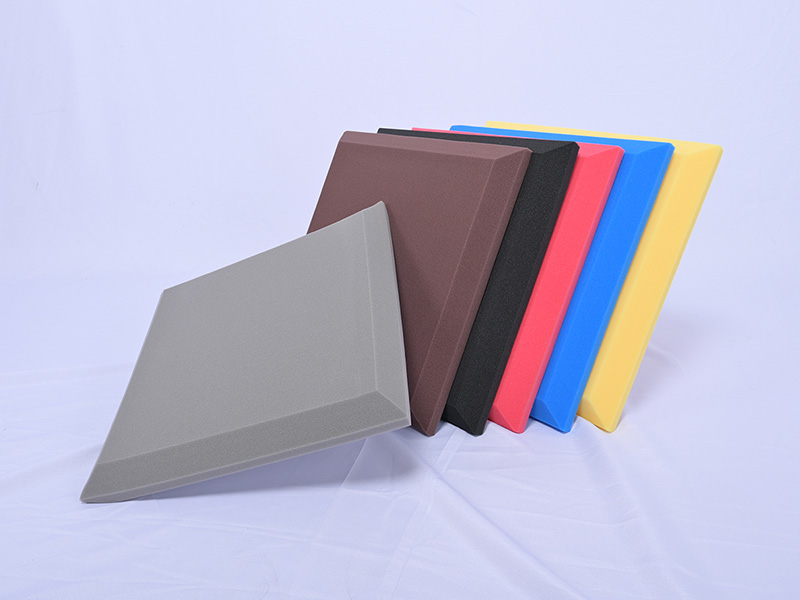Understanding the Polyurethane Foam Manufacturing Process: A Step-by-Step Guide
Explore the polyurethane foam manufacturing process with FUNAS' comprehensive step-by-step guide. Delve into the intricacies of producing versatile, high-quality foam materials used across industries. Gain insights into efficient practices and advanced techniques that define our commitment to excellence and sustainability. Discover how FUNAS leads the way in innovative foam solutions, tailored to meet diverse application needs.
- Preface
- What is Polyurethane Foam?
- Step-by-Step Polyurethane Foam Manufacturing Process
- Raw Materials Used in Polyurethane Foam Production
- Mixing and Reaction of Chemicals
- Expanding Foam
- Curing and Molding the Foam
- Final Product and Quality Control
- Different Types of Polyurethane Foam
- How to Choose Polyurethane Foam for Different Needs?
- FUNAS Insulation: Leading Polyurethane Foam Manufacturer in China
- Conclusion
- FAQs about the Foam Manufacturing Process
Preface
What is Polyurethane Foam?

Step-by-Step Polyurethane Foam Manufacturing Process

Raw Materials Used in Polyurethane Foam Production
Mixing and Reaction of Chemicals
Expanding Foam
Curing and Molding the Foam
Final Product and Quality Control
Different Types of Polyurethane Foam
| Type of Foam | Characteristics | Applications |
| Flexible Foam | Soft, flexible, low-density foam. | Upholstery, mattresses, packaging, automotive seat cushions. |
| Rigid Foam | High-density, sturdy, excellent insulation. | Insulation in buildings, refrigeration units, pipe insulation, automotive parts. |
| Semi-Rigid Foam | Offers a balance between flexibility and rigidity. | Insulation in automotive parts, gaskets, seals. |
|
Spray Foam |
Applied as a liquid, expands into foam. |
Building insulation, roofing, air-sealing. |
| High Resilience Foam | High elasticity, quick recovery. | High-end mattresses, seat cushions, medical cushions. |
How to Choose Polyurethane Foam for Different Needs?
-
Density: affects the strength and durability of the foam. Higher-density foams are more rigid and durable, making them suitable for insulation or structural applications, while lower-density foams are better for cushioning or flexible uses.
-
Flexibility: defines the ability of the foam to bear pressure and regain its shape. Conventional flexible foams have relatively high elasticity and are suitable for cushioning applications such as furniture and automobile seats.
-
Thermal Insulation Properties: Especially important for uses where it is necessary to save energy, for example in construction, insulation, or refrigeration equipment. Low thermal conductivity rigid foam is suitable for these uses.
-
Acoustic Performance: Of particular relevance to soundproofing functions. The foams with small and closely packed cells have good sound absorption characteristics and are therefore suitable for use in walls, floors, and other sound-vulnerable applications.
-
Customization Requirements: There are also some applications where foam will have specific surface treatment (e.g., fire-resistant or water-proof). One should then ask whether these additional features are needed depending on the conditions where the foam is going to be used.
-
FUNAS Insulation: Leading Polyurethane Foam Manufacturer in China
Conclusion
FAQs about the Foam Manufacturing Process

Best Car Sound Insulation Material Suppliers List

10 Best Industrial Rubber Sheet Manufacturers

How to Insulate Pipes in Attic: Easy Steps for Energy Efficiency

2025 Tips: What is the Best Insulation for Pex Pipe

How to Insulate Pipes: Effective Solutions for Long-Term Protection
service
What types of rubber foam insulation products do you offer?
We offer a wide range of rubber foam insulation products, including custom shapes and sizes, thermal and acoustic insulation solutions, and options with specialized coatings such as flame retardancy and water resistance. Our products are suitable for applications in HVAC, automotive, construction, and more.
Can I request custom dimensions or properties for my insulation needs?
Yes, we specialize in custom solutions. Whether you need specific dimensions, thicknesses, densities, or additional coatings, we can work with you to manufacture insulation products tailored to your exact requirements of good materials for heat insulation.
FAQ
How to start a consultation?
You can contact us through our website, phone, or email. We will arrange a professional staff to discuss your needs about best thermal insulator and how we can help you.
Can your insulation products be customized?
Yes, we offer customized solutions for insulation material wholesale to meet the specifications of your project, including custom specifications, sizes, foils and adhesives, colors, etc.
What types of rubber foam insulation do you offer?
We offer a wide range of rubber foam insulation with different thicknesses and specifications. Thermal insulation material manufacturer FUNAS sleeves and sheets are suitable for different application scenarios.
You might also like



This product has passed the national GB33372-2020 standard and GB18583-2008 standard. (The product is a yellow liquid.)
Anggu foam phenolic glue is a kind of glue with corrosion resistance, low odor, high strength and excellent brushing property. Can be sprayed for construction with fast surface drying speed, long bonding time, no chalking and convenient operation.

This product has passed the EU REACH non-toxic standard, ROHS non-toxic standard. (The product is black glue.)
Anggu 820glue is a low-odor, high-strength quick-drying glue; Fast drying speed, long bonding time, no powder, non-toxic.
Leave a message
Have any questions or concerns about our products? Please leave us a message here and our team will get back to you promptly.
Your queries, ideas, and collaboration opportunities are just a click away. Let’s start a conversation.


















































